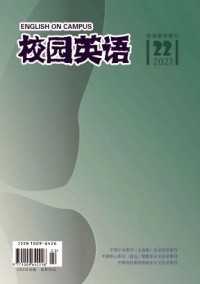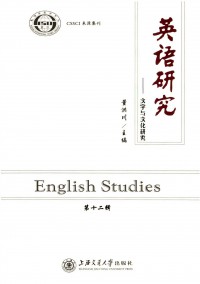英语成语故事

英语成语故事范文第1篇
关键词:学生;小学英语;故事教学法;应用
故事教学法是最适合小学生英语教学的一种教学手段,它完全符合小学生的年龄段和他们的心理特点。这种教学方式,是将课本上的英文单词、词组等教学内容用形象生动的幽默故事呈现出来。运用这种方式,不仅可以激发小学生的学习英语兴趣,更可以培养小学生其他方面的能力,使他们成才。
一、故事教学法的内在含义
如果学生能在学习中产生兴趣爱好,那么,他们就能够自主去思考和学习,这样,就会提高学生的学习的效率,同时也会得到意想不到的结果。所以,教师应用故事教学法来引导小学生学习英语,这样做是激发小学生学习的最有效的方法。
二、应用故事教学法的优势
(1)可以激发孩子学习英语的学习兴趣。喜欢听故事完全符合小学生的年龄特征,孩子们为了能听懂故事的意思,他们会很用心地去听,同时目的性很强,如果听不明白,他们会追着问,直到弄明白为止,而要是听懂了,他们就会有很强的满足感,这样就会激发他们学习英语的兴趣。
(2)可以帮助学生培养英语语感和语速的控制,使他们能够熟悉英语的单词的构成方式和句子、结构等。
(3)通过多听故事和多讲故事,不仅能够提高小学生听讲故事的熟练程度,还会提高他们的英语说写的流利程度。
(4)有助于开拓小学生的思维和提高小学生的分析能力。当小学生在听或在阅读故事时,难免会遇到一些陌生的生词,这样,他们就不可能把故事的整体意思理解出来,这样就会迫使小学生用猜测的方式来推断这些陌生单词的意思,这样一来,不仅会锻炼小学生的推理能力,还会提升他们的智力。
(5)能够提高小学生的沟通和社交能力。教师们不光在教,同时也会给小学生锻炼的机会。有的时候教师会给他们设立讲故事活动,一个学生在前面讲,其他同学当听众,循环演讲,这样不仅可以给他们带来乐趣,还会在演讲过程中给予极大的锻炼,从中可以提高他们的演讲能力,还会提高他们的沟通和社交能力。
(6)会提升小学生的道德水准。因为这些故事都内含很深的寓意,这样,在给学生讲故事或是在听故事中,都会让他们思考故事的主题,当他们听明白了故事的寓意时,就可以自己把故事讲出来了,同时通过寓意也会提升他们的品德教育。
三、如何操作故事教学法
故事教学法主要以培养学生的综合能力为主,从而提高他们全面的听、说、读、写的能力。
(1)故事的选择。故事教学主要就是为了培养学生的学习兴趣,只有选择一个好的故事讲给小学生们听,才会提升小学生的学习兴奋点。这样,就要看我们选择什么样的故事了。首先我们要选择符合学生的年龄段的故事,其次要符合他们的心理特征。
(2)根据课本内容和所要学习的单词进行选择。教师首先利用学生熟悉的材料进行教学,然后再根据课本内容和所要学习的单词进行选择,这样有助于学生理解和掌握新的单词,同时也会提高他们的语言表达能力。①故事中所涉及到的语言与故事情节,是否与之前学过的知识相关联。在教学过程中,教师可利用曾经学过的知识与学生进行互动,或者在互动过程中,也可以运用发问技巧让学生们来回答……这样做,就像教师培同他们一起做游戏一样,不论是谁都能参与进来,这样做就会提高他们参与感。当他们答对了,还会有一定的成就感。②故事中的情节一定要清晰,而且故事中的角色一定要让学生分清,这样做可以让他们更能专注于听故事,同时也会随着故事的发展而心动。这样会让学生领略老师给他们讲这则故事的真正用意。
三、注意的问题
通过故事教学所要达到的目的,就是要辅助小学生学会英语单词的构成和实用句子的应用,最终达到可以进行简单的语言沟通,提高他们的综合能力。所以,教师在课堂教学的时候,要以培养他们的全面发展为宗旨。但是在教的过程中,教师也要注意以下几项,避免让他们走进误区。①学的是英语,一定不要让中英式英语出现,这样会误导孩子。②小学英语要以听、说、读、写、译这五项作为基本教学。③在应用故事教学时,教师所讲的故事要有始有终,必须做到完整。
总之,故事教学法对小学生英语教学来说是一种最有效的方法。教师通过运用寓言故事来吸引学生的注意力,能调动学生的学习兴趣,提高学生的沟通和社交能力,使他们真正成才。
参考文献:
[1]张瑞华.浅谈讲故事在小学英语教学中的应用[J].科教文汇,
2006(4).
英语成语故事范文第2篇
During the Spring and Autumn Period (770-476 B.C.), Duke Xian of the State of Jin Killed the crown prince Sheng because he had heard slanders1 about Sheng and believed them. He also sent his men to arrest Chong Er, Shen Sheng and believed them. He also sent his men to arrest Chonh Er, Shen Sheng's brother. Hearing the news, Chong Er escaped from the state of Jin, remaining a fugitive2 for more than ten years.
After innumerable hardships, Chong Er arrived at the State of Chu at last. King Cheng of the State of Chu treated him with high respect as he would have treated the ruler of a state, believing that he would have a vright fuure.
One day, King Cheng of the State of Chu gave a banquet in honoudr of Chong Er. Suddenly, amid the harmonious3 atmosphere of drinking and talking, King Cheng of the State of Chu asked Chong Er. "How will you repay me when you return to the State of Jin and become its ruler one day?" After thinking for a moment, Chong Er said, "You have plenty of beauties and attendants as well as jewelry4 and silk cloth, and the state of Chu abounds5 in rare brides and animals. What treasure can the State of Jin boast having to present to your majesty6?" King Cheng of the State of Chu said, "You are too modest. Nevertheless, you still have to show your gratitude7 to me in one way or another, I presume?" Smiling, Chong Er answered, "If I should be fortunate enouge to return to the State of Jin and become its ruler, the State of Jin would be friendly to the State of Chu. If, one day, there should be a war between the two states, I would definitely order my troops to retreat three SHE (one SHE is equivalent to thirty LI. The LI is a Chinese unit of length equivalent to 1/2 kilometre. And, therefore, three SHE is about thirty miles.) as a condition for peace. If, under that condition, you were still not reconciled, I would have to fight with you."
Four years later, as might be expected, Chong Er returned to the State of Jin and became its ruler. He was none other than Duke Wen of the State of Jin famous in ancient Chinese history. Ruled by him, the State of Jin became increasingly powerful.
In the year 533 B.C., the Chu troops and the Jin troops confronted each other in a battle. Faithful to his promise, Duke Wen of the State of Jin ordered his troops to retreat about thirty miles. After retreating, the Jin troops were stationed at Chengpu. Seeing that the Jin troops were retreating, the Chu troops thought that the enemy troops were afraid, and began chasing them. Taking advantage of the Chu troops' arrogance8 and their talking the Jin troops lightly, the Jin troops concentrated their forces and inflicted9 a crushing defeat on the Chu troops, thus winning the victory of the battle of Chengpu.
This set phrase, "retreating about thirty miles as a condition for peace," is derived10 from the Chapter "The Twenty-second Year of Duke Xi" in ZuoZhuan, the famous commentary by Zuo Qiuming on The spring and Autumn Annals. The idea of this set phrase is to give way to somebody in order to avoid a conflict.
春秋时候,晋献公听信谗言,杀了太子申生,又派人捉拿申生的弟弟重耳。重耳闻讯,逃出了晋国,在外流忘十几年。
经过千幸万苦,重耳来到楚国。楚成王认为重耳日后必有大作为,就以国群之礼相迎,待他如上宾。
一天,楚王设宴招待重耳,两人饮洒叙话,气氛十分融洽。忽然楚王问重耳:“你若有一天回晋国当上国君,该怎么报答我呢?”重耳略一思索说:“美女待从、珍宝丝绸,大王您有的是,珍禽羽毛,象牙兽皮,更是楚地的盛产,晋国哪有什么珍奇物品献给大王呢?”楚王说:“公子过谦了。话虽然这么说,可总该对我有所表示吧?”重耳笑笑回答道:“要是托您的福。果真能回国当政的话,我愿与贵国友好。假如有一天,晋楚国之间发生战争,我一定命令军队先退避三舍(一舍等于三十里),如果还不能得到您的原谅,我再与您交战。”
四年后,重耳真的回到晋国当了国君,就是历史上有名的晋文公。晋国在他的治理下日益强大。
英语成语故事范文第3篇
Wang Xi-zhi is one of the most famous calligraphers during the Eastern Jin Dynasty of China. When he was very young, he practiced his art every day and never stopped.
Later he absorbed the strong points of all the other schools of calligraphy1, and developed his own unique style of writing. Because of his achievements, he has been honored as one of China's sages2 of calligraphy.One time, Wang Xi-zhi sketched3 in wood for an engraver4 to cut. Then the engraver found the ink had penetrated5 one centimeter into the wood.
"Ru Mu San Fen6" is got from this story, which means the calligraphy is penetrating7.
Now it is often used to describe expressing sharp ideas or profound views.
入木三分
王羲之是中国东晋时代一个很有名的书法家,他从小就刻苦练字,从不间断,以后又吸取了各个不同书法派的优点,形成他自己独特的个性。因为他在书法上的成就,人们都尊称他为中国书法界的“圣人”。
英语成语故事范文第4篇
During the Spring and Autumn Period (770-476BC), there was many dukedoms under the king of the Eastern Zhou Dynasty. These dukedoms often fought one another to expand their territories. And within a dukedom, the struggle for power frequently occurred. A typical case was the murder of the Duke of Wei by his younger brother Zhou Xu.
Zhou Xu committed the crime with the help of an important official called Shi Hou. Eventually, Zhou Xu became duke himself. Then he launched wars against other dukedoms and the people suffered. There were complaints and resentments1 all around.
When he learned about this, Zhou Xu was worried. He talked with Shi Hou about how to stabilize2 the situation and win back people's confidence. Shi Hou said:"That's easy. I'll ask my father to speak for us. He is highly esteemed3 by all the officials and the people. I'm sure he'll help us out."
Shi Hou's father, Shi Que, had been a high-ranking official serving under the former duke. He resigned when Zhu Xu seized power. He hated Zhou Xu for his murder of the former duke. He also hated his own son, Shi Hou, for his part in the murder.
Now, Shi Hou came and asked him for help. the father said, "A duke' ascendance to power should be granted by the king. If the king approved it, all the problems will be solved."
"But how can we bet the king's approval?" Shi Hou asked his father. The old man said, "The Duke of Chen is trusted by the king and his dukedom has good relationship with ours. If you and Zhou Xu go to the Duke of Chen and ask him for help, I'm sure he is willing to say a good word for you before the king."
Shi Hou passed his father's word to Zhu Xu and they went to the Dukedom of Chen. But before they arrived, the old man sent an express letter in secret to the Duke of Chen asking him to kill the two murderers.
As soon as Zhou Xu and Shi Hou arrived in the Dukedom of Chen, they were arrested. Some officials from Wei made a special trip to Chen to kill the two men. They put Zhou Xu to death but hesitated to kill Shi Hou because of his father. When the old man learnt about this, he said firmly :'My son has also committed the murder of the duke. What's the good to have him in the world!" he sent his own man to Chen and beheaded Shi Hou. Later historians commented: "To safeguard the interest of the country, Shi Que did not bend the law for the benefit of his relative. It's really a case of cutting off consanguinity4 for the sake of righteousness!" Hence comes the idiom "Uphold justice at the cost of one's blood relation".
大义灭亲
春秋时期,在东周周天子的统治下有许多小公国。这些国家常常为了扩大自己的领土而互相争斗。而且,在一个公国内部,权力之争也时常发生。卫国的州吁杀害自己的哥哥――卫国的公爵就是一个典型的例子。
在一个重要的大臣石厚的帮助下,州吁杀害了他的哥哥。最后,他作了卫国的公爵。接着,他发动了同其他公国的战争,使卫国人民经受了很多痛苦。人们怨声载道。
州吁对此也很担忧。他与石厚商量如何巩固政局,赢得百姓的信任。石厚说:"这个容易。大臣和百姓们都十分尊敬我的父亲,我去请他出来为我们说话。这样我肯定他能帮我们解决这个问题。"
石厚的父亲石碏曾是前任公爵的上卿。州吁夺权后,他辞去了官职。他痛恨州吁杀害了前任公爵。 同时,他也恨自己的儿子石厚,因为他参与了这场谋杀。 现在,石厚来向他求助。石碏说:"诸侯接位,应该得到周天子的许可。只要他同意了,所有的问题都好解决。
"可是怎么让周天子会同意吗?" 石厚问。老人说:"陈国公爵受到周天子的信任,而且陈国和我国关系很好。如果你和州吁先去陈国,向他求助,我肯定他会乐意在周天子面前为你们说好话的。"
石厚把他父亲的主意告诉了州吁,然后他们来到了陈国。但在他们到达前,石碏已经秘密快信送至陈国公爵,要求他杀死这两名凶手。
英语成语故事范文第5篇
As expected, the troops of the State of Jin, allowed to pass through the State of Yu, destroyed the State of Guo and on their return trip captured the monarch of the State of Yu who went out personally to meet them, htus destroying the State of Yu as Well.
This story appears in the chapter " The Fifth Year of Duke Xi " in Zuo zhuan,the famous commentary by Zuo Qiuming on The Spring and Autumn Annals. The set phrase " if the lips are gone, the teeth will be cold " is used to mean that two persons or things share a common lot and that is one fails ,the other is in danger.
春秋时候,晋献公想要扩充自己的实力和地盘,就找借口说邻近的虢(guó)国经常侵犯晋国的边境,要派兵灭了虢国。可是在晋国和虢国之间隔着一个虞国,讨伐虢国必须经过虞地。“怎样才能顺利通过虞国呢?”晋献公问手下的大臣。大夫荀息说:“虞国国君是个目光短浅、贪图小利的人,只要我们送他价值连城的美玉和宝马,他不会不答应借道的。”晋献公一听有点舍不得,荀息看出了晋献公的心思,就说:“虞虢两国是唇齿相依的近邻,虢国灭了,虞国也不能独存,您的美玉宝马不过是暂时存放在虞公那里罢了。”晋献公采纳了荀息的计策。


